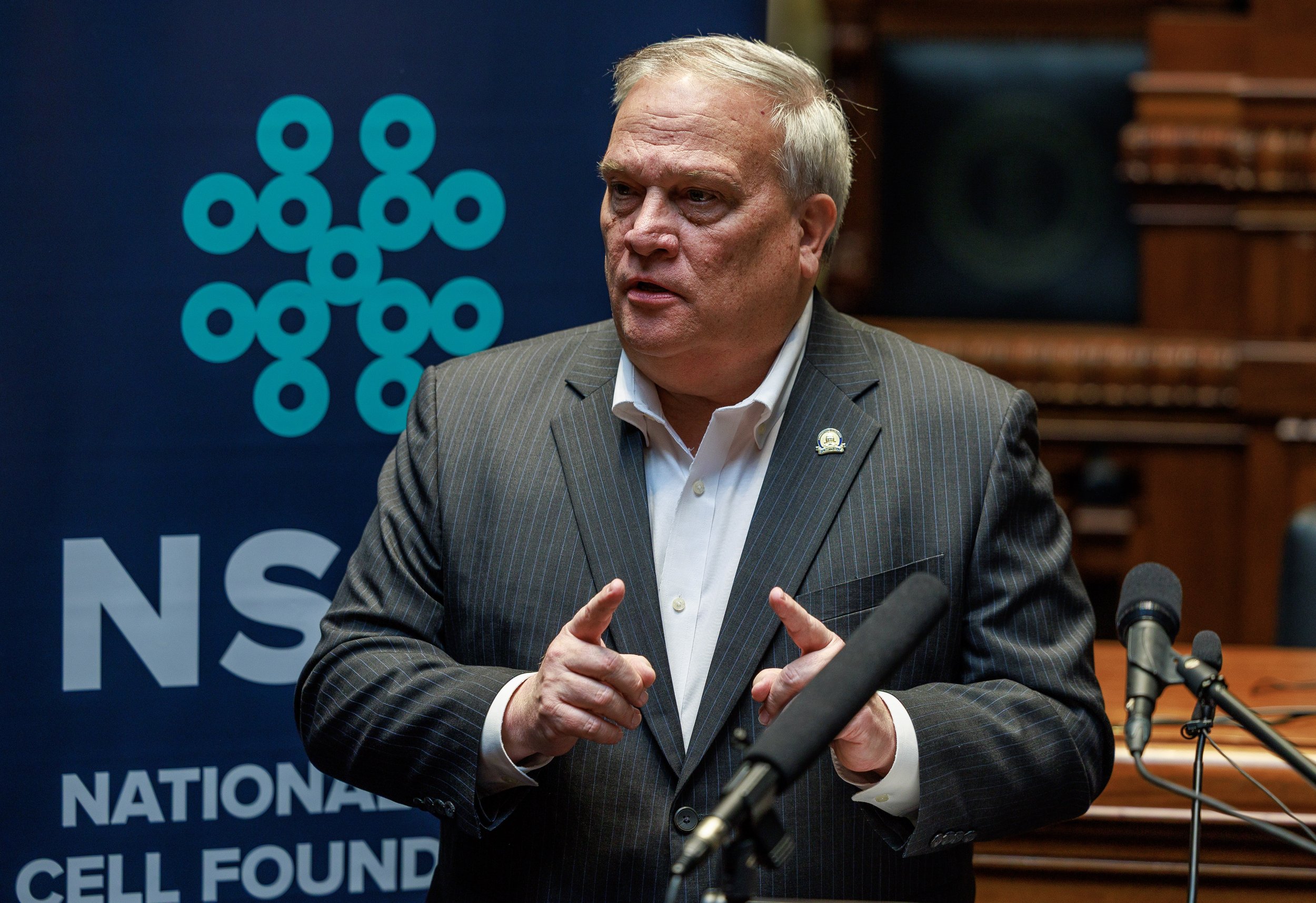KENTUCKY’S $300,000 INVESTMENT IN RESEARCH PULLS DOWN $3.1 MILLION FROM NASA
Matching grant to continue studying effects of microgravity on brain cells, driving new cures for Parkinson’s, multiple sclerosis and Alzheimer’s
FRANKFORT, KY (March 26, 2025) – The National Stem Cell Foundation (NSCF), a leading funder of space-based research on brain cells to fight neurodegenerative conditions like Parkinson’s, progressive multiple sclerosis, and Alzheimer’s, announced today a $3.1 million award from NASA today to continue its breakthrough studies on brain cell behavior in microgravity.
The Commonwealth of Kentucky has a growing presence in the rapidly expanding space economy. The Kentucky General Assembly made the NASA grant possible through a 10 percent match valued at $300,000 in 2024 through Senate Bill 91. The NASA award will fund additional ground research and another three missions to the International Space Station (ISS) through 2027.
“This matching NASA grant shows Kentucky's commitment to investing not just in this generation, but in the ones to come,” said Senate President Robert Stivers, R-Manchester. “Our state faces serious health challenges, and investing $300,000 now reinforces our dedication to improving health outcomes, enhancing quality of life, and increasing longevity. By helping people live longer, healthier, and more productive lives, we are strengthening families, communities, and the future of the commonwealth.”
The announcement was made during a press conference in Kentucky’s capital hosted by Stivers and senior officials from NSCF. The team’s patent-pending method for the long-duration in-space culturing of organoids (tiny 3D replicas of an organ that mimic cell behavior) has already been widely adopted by the space community.
NSCF has conducted six missions on the ISS since 2019 and sent 3D organoid models of the human brain to the orbiting laboratory. Organoids for the first six flights have been made from the cells of people with Parkinson’s disease and primary progressive MS. The next flights will also include organoids made from the cells of people with Alzheimer’s. Findings from the research have been recently published in Stem Cells Translational Medicine.
In the last round of highly competitive In Space Production Application (InSPA) awards, NSCF was NASA’s first and top priority selection for alignment with NASA strategic goals of developing applications that will significantly improve the quality of life for people on Earth, strengthen U.S. technological leadership, and create high-quality jobs. These missions continue NASA’s commercial development partnership with Axiom Space, the leading provider of human spaceflight services and operating end-to-end missions to the ISS while developing its successor, Axiom Station.
Modeling diseases in space
The ability to observe cell interactions in a way not possible on Earth is opening the door to new cell, drug, and gene therapies for neurodegenerative diseases that affect thousands of Kentuckians and tens of millions worldwide.
“We’re looking for new treatments and curative therapies for Parkinson’s, MS, Alzheimer’s, and other neurodegenerative diseases leveraging the accelerated environment of microgravity,” says Dr. Paula Grisanti, CEO of NSCF. “Solving the puzzle of these diseases will have a knock-on effect for these and other neurodegenerative diseases that include ALS and a number of rare childhood disorders.
The World Health Organization estimates that over 65 million people worldwide suffer from neurodegenerative diseases, including various forms of dementia, Alzheimer’s, Parkinson’s, and MS. The cost of care for these diseases in the U.S. is expected to reach well over $2 trillion in the next two decades and increase steadily as the population ages. According to a report from Alzheimer's Disease International, the number of people living with dementia alone is expected to double every 20 years, it is projected to reach 78 million in 2030 and 139 million in 2050.
“When we began this mission, we had no idea what was going to happen,” recalls Dr. Jeanne Loring, NSCF’s senior scientific ddvisor and founder of the Center of Regenerative Medicine at Scripps Research. A key discovery was that microgravity accelerated cell development which provided insights to help identify and develop therapeutic interventions more rapidly.
NSCF researchers can make brain organoids from anyone, including people who have mutations for these diseases. The ultimate goal is to provide flight-proven, validated models of these diseases to industry, academic institutions, and foundations for the accelerated development of new diagnostics and novel treatments for neurodegenerative diseases. These models can also help NASA develop countermeasures for the effects of space flight on astronauts participating in long-duration missions.
###
About the National Stem Cell Foundation
The National Stem Cell Foundation is a non-profit organization that funds adult stem cell and regenerative medicine research, underwrites a professional development program for middle school science teachers inspiring the next generation of STEM pioneers nationwide, and covers co-pays and deductibles for children participating in clinical trials for rare diseases when those out-of-pocket costs are beyond a family’s means. For more information, visit www.nationalstemcellfoundation.org.
About the Legislative Research Commission
Please visit Legislature.ky.gov for more information on Senate Majority Caucus members and the 2025 Legislative Session, including committees, membership, legislation, and more.
Live legislative coverage is available at KET.org/legislature and via the Legislative Research Commission YouTube channel.
Access archived footage of legislative meetings at ket.org/legislature/archives.
Follow the Kentucky Senate Majority Caucus on X, Facebook, and Instagram. Visit KYSenateRepublicans.com for information on caucus members and to view press releases from our office.
Senate President Robert Stivers, R-Manchester, represents the 25th Senate District, which includes Clay, Jackson, Knox, McCreary, Owsley, and Whitley Counties. As of January 1, Stivers has served as Kentucky Senate president for over a decade. He first assumed the position in 2013, succeeding former Senate President David Williams. As Senate president, Stivers chairs the Senate Committee on Committees and the Rules Committee and is co-chair of the Legislative Research Commission. He is also a member of the Senate Judiciary Committee.
For a high-resolution .jpeg of President Stivers, please visit: https://legislature.ky.gov/Legislators Full Res Images/senate125.jpg.

